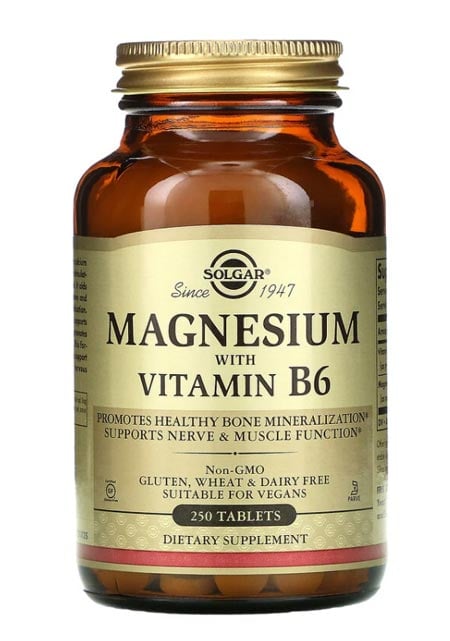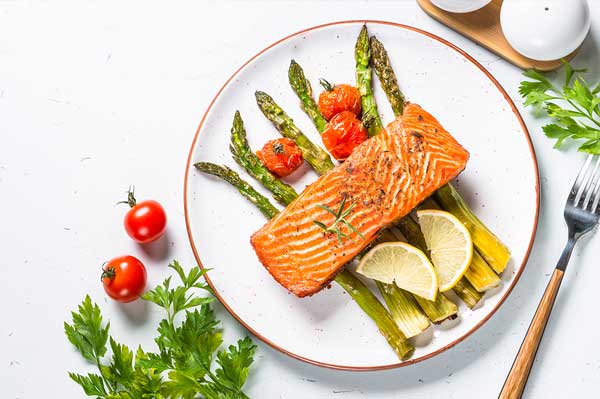Vitamins and Minerals to Boost Your Metabolism and Promote Weight Loss
If you want to lose weight and you are looking for the best vitamins for weight loss, this article is for you.
Our body is an incredible machine that includes many different systems that work together. If you have a vitamin deficiency, it can affect your sleep that can disrupt your metabolism. When you have a sluggish metabolism, you may feel fatigued and eventually gain weight. Exactly the opposite of what you want to achieve.
Can vitamins help you lose weight?
Weight loss isn’t easy. But if your doctor recommends it, there are ways to lose weight safely.
Low-carb diets and whole-food diets are effective for weight loss and usually don’t leave you feeling hungry and therefore are easier to stick to than other diets.
There are three main theories to lose weight, which are based on:
- Cut calories intake
- Reduce appetite
- Boost metabolism
A well-balanced diet should fulfill most of your nutrient needs – this way you can lose weight safely and still have enough energy throughout the day and maintain a healthy lifestyle. But sometimes limited diets may cut down essential nutrients and therefore adding a few safe vitamin supplements can provide the extra boost you need to stay on track with your healthy weight loss regimen and even boost your metabolism and energy.
In other words, if you can’t seem to lose weight no matter what you do, the answer may not always be to push yourself to work out harder or eat less. It could be that you need to address a vitamin deficiency.
What is metabolism and how boosting metabolism can help you lose weight?
Metabolism is the process the body uses to break down food and nutrients for energy and to support different functions in our body.
Vitamins and minerals that we consume can boost our metabolism and help us burn calories more quickly.
What vitamins help you lose weight?
The 4 best vitamins and minerals for maintaining and boosting body functions, including metabolism, and supporting good weight control are listed below.
Best vitamins for weight loss:
# Vitamin B12
# Vitamin D
# Magnesium
# Iron
Vitamin B12
Our body needs vitamin B12 to support the function of our brain, heart health, nerves and blood cells to produce DNA. When you deficient in B12, your body isn’t able to produce enough red blood cells to effectively transport oxygen throughout your body. This is why you may feel tired and weak.
Vitamin B12 deficiency turns up often the reason why some individuals struggling to lose weight. The reason for this is that our bodies don’t store the B vitamins in the same way as they store other vitamins.
Benefits of B vitamins for weight loss
BOOST METABOLISM AND INCREASE ENERGY
B12 works by converting the food we eat into fuel that keeps the body running smoothly by boosting metabolism (3) and provide lasting energy. A good metabolism and high energy can help you burn more calories and have more energy to work out. This is the reason why vitamin B12 is often associated with weight loss.
People with Vitamin B12 deficiency are characterized by megaloblastic anemia, fatigue, weakness and neurological changes such as numbness and tingling in the hands and feet may occur.
Increasing vitamin B12 intake through foods or supplements can help deficiency, which may improve these side effects including low energy levels and fatigue.
VITAMIN B HELPS BREAK DOWN CARBS
Vitamin B assists in the metabolism of carbohydrates, helps synthesize the oxygen-carrying hemoglobin, and helps produce neurotransmitters. It also lowers blood levels of the amino acid homocysteine.
BOOST GOOD CHOLESTEROL
Studies showing that niacin (Vitamin B3) can boost levels of good HDL cholesterol and lower triglycerides. Niacin also modestly lowers bad LDL cholesterol.
HELPS BALANCE BLOOD SUGAR
Researchers linked consumption of vitamins B2 and B6 to a lower risk for type 2 diabetes.
HELP REDUCE THE RISK OF DEPRESSION
Vitamin B12 and other B vitamins play a role in producing brain chemicals that affect mood and other brain functions. Low levels of B12, B6, and folate can be linked to depression, anxiety, and stress (4).
If you have a vitamin B12 deficiency, taking a daily supplement that includes vitamin B12 may help your body get the nutrients it needs.
Can vitamin B12 help you lose weight?
While there is currently no evidence that vitamins promote weight loss and research in humans is still very limited, some studies suggest that vitamin B12 could affect fat and metabolism.
Several researches that examined the association between blood levels of vitamin B12 and obesity among adults in the United States found that vitamin B12 level was significantly lower in adults with obesity and overweight than healthy – non obese individuals (1,2).
While it can’t be concluded that vitamin B12 directly causes weight loss, it does indicate that adequate vitamin B12 levels may be associated with a lower risk of weight gain and obesity.
Foods that contain vitamin B include:
- Whole grains such as brown rice, barley, and millet
- Red meat
- Eggs
- Dairy products such as milk and cheese
- Legumes
- Seeds and nuts
- Dark, leafy vegetables such as spinach, broccoli, and kai la
- Citrus fruits, avocados, and bananas
Vitamin B complex over the counter
How much vitamin B12 is too much?
Since vitamin B12 is a water-soluble vitamin, it’s generally considered safe, even at high doses. The IOS states that no adverse effects have been associated with excess vitamin B12 intake from food and supplements in healthy individuals.
However, supplementing with excessively high levels of vitamin B12 has been linked to some negative side effects such as outbreaks of acne and rosacea, a skin condition that causes redness and pus-filled bumps on the face.
How much vitamin B12 should you take a day?
According to National Institutes of Health (NIH) the typical general supplemental dose of vitamin B12 is 1-25 mcg per day; The recommended dietary allowances (RDAs) of vitamin B12 are 1.8 mcg; older children and adults, 2.4 mcg; pregnant women 2.6 mcg; and breast-feeding women, 2.8 mcg.
Vitamin D
We need vitamin D to keep our bodies functioning well. Vitamin D helps with strong bones and may help prevent some cancers. Symptoms of vitamin D deficiency can include muscle weakness, pain, fatigue, and depression.
Vitamin D and Weight Loss
Vitamin D is also included in the category of best vitamins for weight loss. Vitamin D has a significant role in calcium homeostasis and metabolism.
According to US National Library of Medicine, low serum vitamin D has been found to be associated with various types of metabolic illness such as obesity, diabetes mellitus, insulin resistance, cardiovascular diseases including hypertension.
Studies showed that overweight and obese people with vitamin D deficiency who took vitamin D supplements while trying to lose weight, had lost more weight and had greater reductions in their waistlines than those who hadn’t taken the supplements.
Foods that contain vitamin D include:
- Oily fish such as salmon, sardines, herring, and mackerel
- Red meat
- Liver
- Egg yolks
- Fortified foods such as some fat spreads and breakfast cereals
Another way to boost your vitamin D is by spending time in sunlight. Vitamin D is often referred to as “the sunshine vitamin” because the sun is one of the best sources of this nutrient.
Vitamin D supplements over the counter
How much vitamin D should you take a day?
If you choose to take vitamin D supplements, 10 micrograms a day will be enough for most people. Do not take more than 100 micrograms (1,000 IU) of vitamin D a day as it could be harmful. Before taking any vitamins, make sure to consult your doctor.
Magnesium
Magnesium is an important mineral that the body needs to stay healthy, playing a role in over 300 enzyme reactions in the human body. Its many functions include helping with muscle and nerve function, regulating blood pressure, and supporting the immune system.
Magnesium and Weight Loss
Magnesium is one of the best vitamins for weight loss and energy production. Without magnesium, the chemical reactions that produce energy in the body cannot happen. This dependency means that magnesium is essential for metabolism and energy production. Our cells have an energy currency called ATP that gives them the life they need to complete daily tasks. When we don’t have enough magnesium, it lowers our ATP production, which makes us tired and lowers our metabolism.
If you’re magnesium deficient, it could be contributing to your weight gain or preventing you from losing weight. Correcting a magnesium deficiency can help your body function more efficiently and help normalize metabolism.
Foods that contain magnesium include:
- Pumpkin seeds
- Nuts such as almonds, cashews, peanuts
- Yogurt
- Dark leafy greens such as spinach
- Dark chocolate
- Black beans
- Bananas
- Oatmeal
- Avocados
- Kidney beans
- Soymilk and tofu
- Edamame
- Broccoli
- Whole grains
- Fish
Magnesium supplements over the counter

How much magnesium should you take a day?
According to the national institute of health (NIH), the daily recommendations for magnesium are 300mg for men aged 19 to 30, 310mg for women aged 19 to 30, 420mg for men over 31, and 320mg for women over 31.
The benefits of magnesium are associated with long-term use. Therefore, the most important thing is to set a schedule and stick to it to ensure that that you’re getting your daily dose.
Iron
Iron is a mineral that our body needs for many functions. Our body uses iron to make hemoglobin, A protein in red blood cell that carries oxygen from the lungs to all parts of the body, and myoglobin that is a protein that provides oxygen to muscles. Our body also needs iron to make some hormones.
Without enough iron, our body can’t produce enough of a substance in red blood cells that enables them to carry oxygen. Therefore, one of the symptoms of iron deficiency is extreme fatigue and weakness.
Iron and Weight Loss
Iron plays a role in helping your body create energy from nutrients. Iron also helps carry oxygen to all the cells in your body, including your muscles. This, in turn, helps them burn fat. Too little iron can lead to iron-deficiency anemia, which is one of the most common nutritional deficiencies. This condition can directly impact our tolerance to exercise or our ability to lose weight, our athletic performance, and our overall health.
Foods that contain iron include:
- Legumes such as lentils, beans, and chickpeas
- Firm tofu
- Tempeh
- Pumpkin seeds and sunflower seeds
- Nuts such as cashews and almonds
- Wholegrain cereals
- Eggs
- Red meat
- Canned salmon
Iron supplements over the counter
How much iron should you take a day?
The amount of iron you need is 8.7mg a day for men over 18. And 14.8mg a day for women aged 19 to 50. Women over 50 should take 8.7mg a day. The reason women need more iron than men is because they lose iron in their menstrual period.
Best vitamins for weight loss – Bottom line,
It is important to note that some supplements may cause adverse effects in high doses. For this reason, anyone thinking about taking new vitamin or mineral supplements to boost their metabolism and lose weight should speak to a doctor first.
It is important to remember that every body is different. And therefore, taking these vitamins will not necessarily improve metabolism. However, they will help ensure adequate nutrition and correct deficiencies if they exist. This way you can maintain a healthy metabolism.
With that being said, the safest way to consume more metabolism-boosting vitamins and minerals is by eating rich foods and maintain a balanced diet that is varied and nutritious.
Related:
8 KETO-FRIENDLY PROTEIN BARS TO FUEL YOURSELF
5 BEST EXERCISE EQUIPMENT FOR BUSY MOMS









